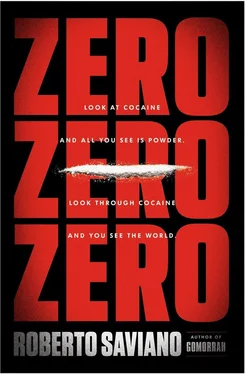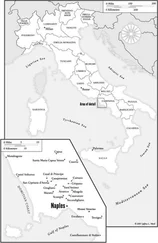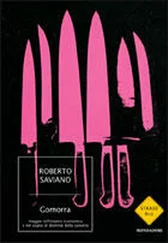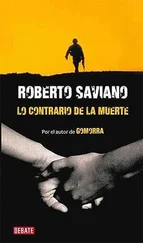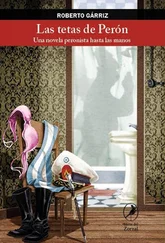It seemed clear from the start that the Mexican police were involved. Testimonies reveal that the kidnapping was carried out with the help of corrupt police officers in the pay of the Guadalajara cartel. But Los Pinos — the president’s residence — did nothing; no investigations were launched, no answers given. The Mexican government blocked every initiative, played down the whole affair, saying, “Someone’s simply gone missing — he could be sunbathing in Guadalajara. It’s not a priority.” They would not admit to the kidnapping. Washington also advised the DEA to let it drop and accept what had happened, since political relations between Mexico and the United States were too important to be compromised over some disappeared agent. But the DEA couldn’t accept such a defeat. They sent twenty-five of their men to Guadalajara to investigate. What ensued was a huge manhunt for Kiki Camarena. El Padrino began to feel suffocated. Touching Kiki had probably been a bad move. But when you have an entire contingent of political allies, and above all when you think you’ve taken care of everything, down to the last detail, you have the arrogance of power. And the power of money. They had to make an example out of Kiki. The trust they’d had in him was absolute, so the punishment had to be unforgettable. It had to go down in history, to stay lodged in people’s memories.
Kiki’s body was found a month after the kidnapping, near La Angostura, a small village in the state of Michoacán, sixty miles south of Guadalajara. Dumped along the side of a country road. His tortured body was still bound, gagged, and blindfolded. The Mexican government lied, declaring that the body, wrapped in plastic, had been found there by a peasant. But FBI investigations on the soil traces on his skin confirmed that the body had been placed there only later; it had been buried somewhere else first. Buried in that hole where Don Arturo, the elderly opium smuggler, placed flowers, that hole where he took his children. And when his grandchildren and his grandchildren’s children asked his permission to join the cartels, to work for the drug lords, to give them land, Arturo didn’t say a word. Once a respected opium boss, he had renounced everything, but his descendants regretted his decision; they couldn’t understand it. Until the old man brought them all to that hole and told them about Kiki, and about that dog he’d seen when he was a little boy. It was his way of explaining what his refusal meant. It was his way of entering the fire and carrying out his puppies. Don Arturo knew he had to have the courage of that dog.
Kiki Camarena’s story shouldn’t hurt anymore, maybe it doesn’t even need to be told anymore, because by now it’s well known. A story one might think is marginal, which took place on an unknown, insignificant strip of land. But Kiki’s story is central. It’s the origin of the world, I’m tempted to say. It’s essential to understanding where our modern world begins, its birth pains, its principal path. What we experience today, the economy that regulates our lives, is determined more by what Félix Gallardo, El Padrino, and Pablo Escobar, El Magico, decided and did in the eighties than by anything Ronald Reagan and Mikhail Gorbachev decided or did. Or at least that’s how I see it.
Various testimonies relate that in 1989 El Padrino convened all the most powerful Mexican drug lords in a resort in Acapulco. While the world was preparing for the fall of the Berlin Wall, while the past of the cold war, iron curtains, and insuperable borders was being buried, the future of the planet was silently being planned in this city in southwestern Mexico. El Padrino decided to subdivide his activity and assign various segments to traffickers the DEA hadn’t fixed their eyes on yet. He divided his territory into zones, or plazas , each entrusted to men with exclusive rights to manage his assigned plaza . Whoever traveled through territory beyond their control had to pay the ruling cartel. In this way, traffickers would no longer enter into conflict over control of strategic areas. Félix Gallardo created a model of cohabitation for the cartels.
But subdividing his territory also presented other advantages. Four years had passed since the Kiki story, and for El Padrino, it was still an open wound. He hadn’t thought it possible to be duped like that. Which is why it was so important to strengthen the chain, to prevent a weak link from bringing the entire organization to its knees. If it was no longer a single unit, the authorities could no longer bring it down in a single blow; the politicians could no longer compromise it if they withdrew their protection or the winds shifted. What’s more, autonomous management allowed for increased business potential for each group, and each boss would keep close watch on his plaza . Investments, market research, competition — all these things provided more work and more opportunities. To put it succinctly, El Padrino was staging a revolution, the significance of which the entire world would soon come to realize: He was privatizing the drug market in Mexico and opening it up to competition.
They say that the meeting at the Acapulco resort wasn’t rowdy or loud. There was no fighting, no melodrama, no comedy. They arrived, parked, and took their places at the table. There were few bodyguards and a menu fit for an important occasion, such as a baptism — the baptism of the new narco power. El Padrino arrived after the others had already started eating. He took his place and proposed a toast. A toast with several glasses, one for each territory to be assigned. Glass in hand, he stood and asked Miguel Caro Quintero to do the same: The Sonora corridor had been assigned to him. After the applause died down, they drank. The second glass was for the Carrillo Fuentes family: “For you, Ciudad Juárez.” A new glass, and this time he turned to Juan García Ábrego, to whom he assigned the Matamoros corridor. Then it was the Arellano-Félix brothers’ turn: “For you, Tijuana.” The last glass was for the Pacific coast. Joaquín Guzmán Loera, El Chapo, and Ismael Zambada García, El Mayo, got to their feet even before being called. They were expecting to get that zone; they’d been viceroys there, and now, finally, they were kings. The division was done; the new world created. It might be just a legend, but I’ve always believed that only a legend of this sort has the necessary symbolic force to give birth to an actual foundation myth. Like an ancient Roman emperor who summons his heirs and assigns each of his children a portion of his possessions. El Padrino needed to inaugurate the new era with a sovereign gesture, or needed at least for a story like this to get around.
So the drug cartels were born that day, and today, more than twenty years later, they still exist. A new breed of criminal organization, with the means and the power to decide prices and influences, either with some new rule or law decided around a table, or with TNT and thousands of deaths. There’s no one way to decide the price and distribution of cocaine.
El Padrino would still supervise the operations: He was the ex-cop, the one with the contacts, so he would still be the point man. But he didn’t get to see his plan put into effect. When Kiki’s body was found almost four years earlier it was immediately clear that his colleagues at the DEA would not rest until justice was done for the horror endured by one of their own. Relations between the Mexican and American governments grew increasingly tense. The nearly two thousand miles that join Mexico and the United States, that long tongue of land that licks America’s ass — as the carriers like to say — and as a result of licking, manages to slip in whatever it wants, was guarded day and night with a rigor and intensity never before seen. One of Rafael Caro Quintero’s associates confessed that Kiki’s body had originally been buried in a wooded park west of Guadalajara, not where it was found. Soil samples from the park matched those found on the victim’s skin. Kiki’s clothes had been destroyed, on the excuse that they were putrid, but it was clearly an attempt to erase the evidence. At that point the DEA launched the biggest homicide investigation ever undertaken by the United States up till then. It was called Operación Leyenda — Operation Legend. The search for the murderers turned into a manhunt. The American agents followed every possible scent. Five policemen who admitted taking part in the plot to unmask Camarena were arrested. They all named as instigators Rafael Caro Quintero and Ernesto “Don Neto” Fonseca Carrillo.
Читать дальше
